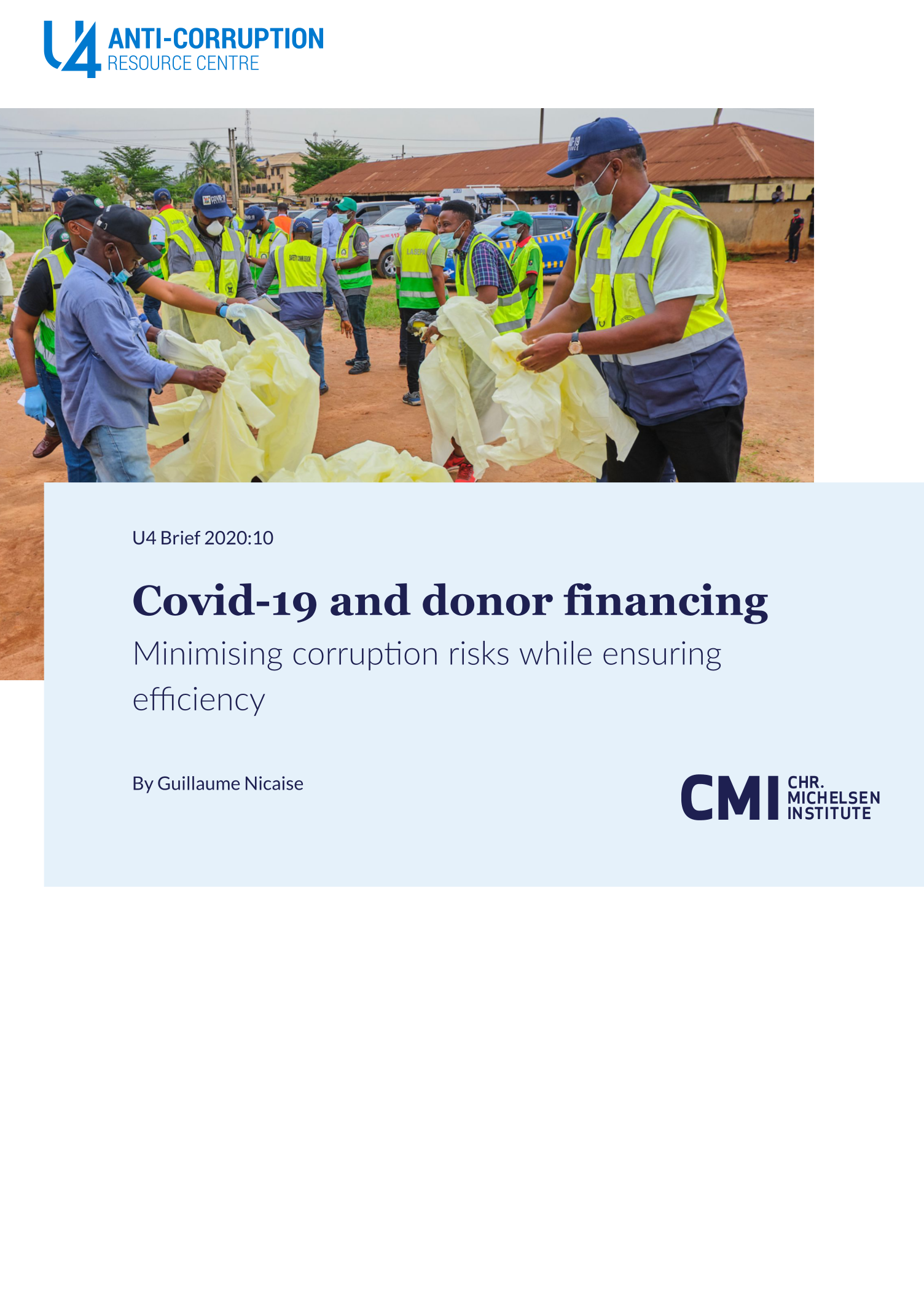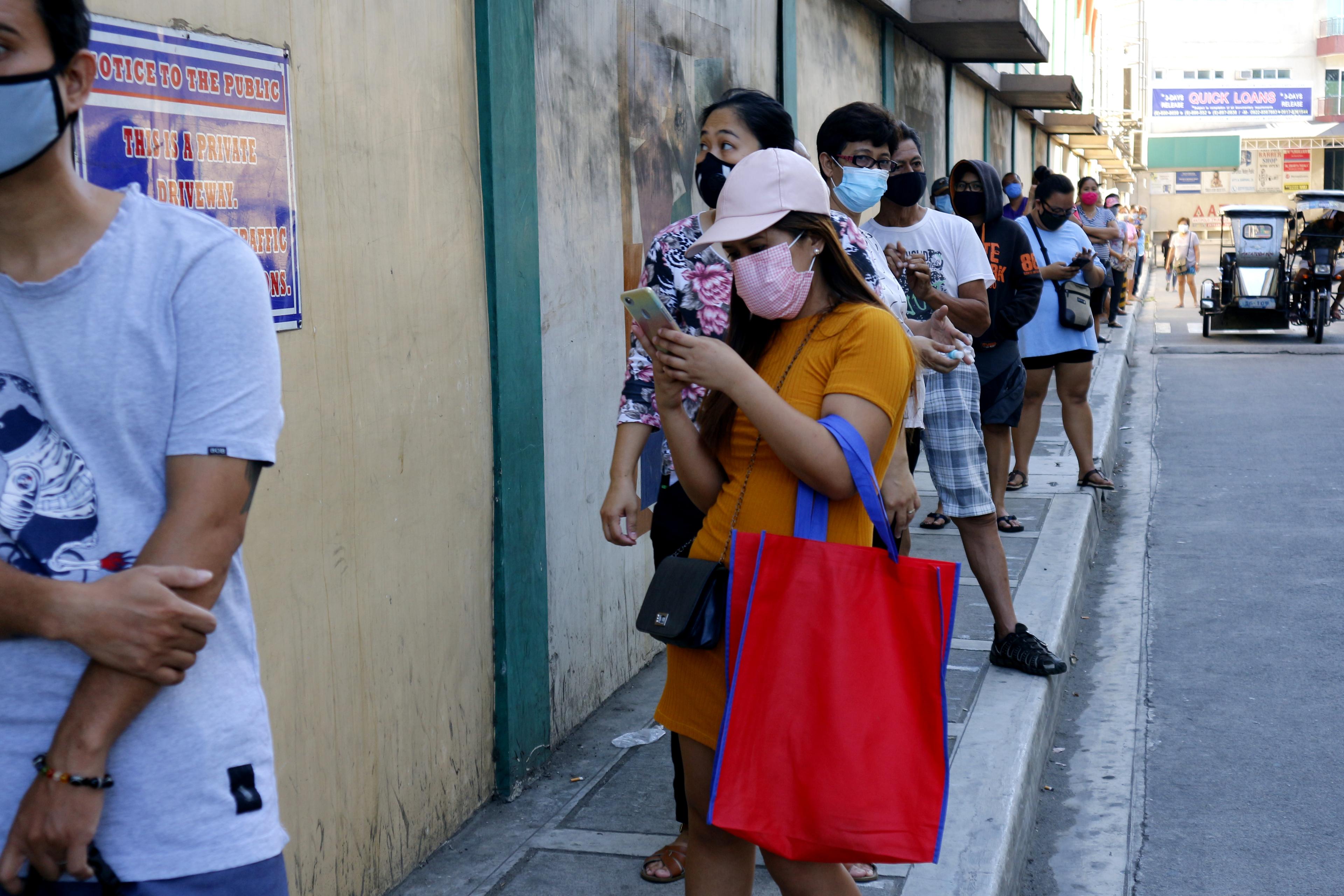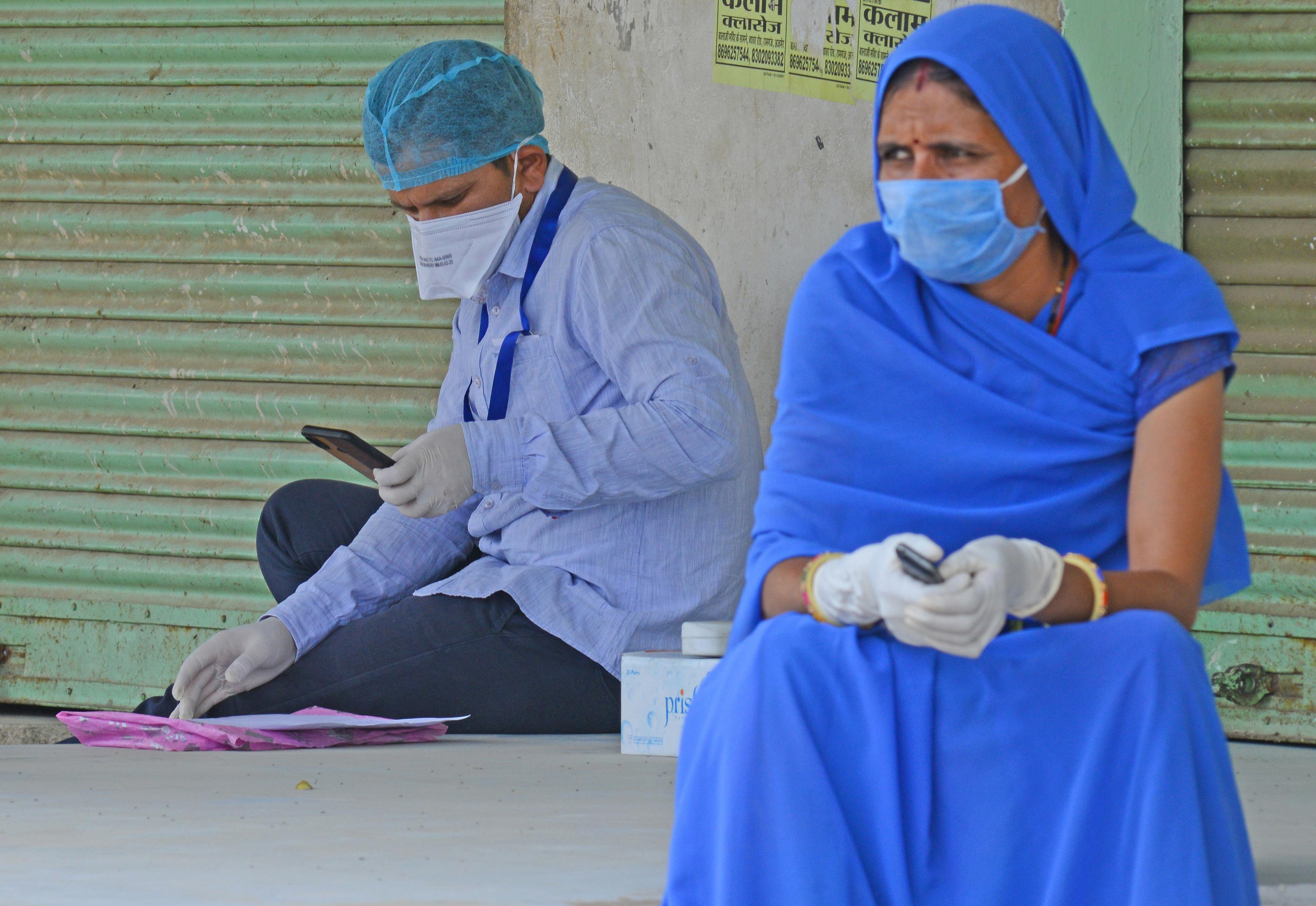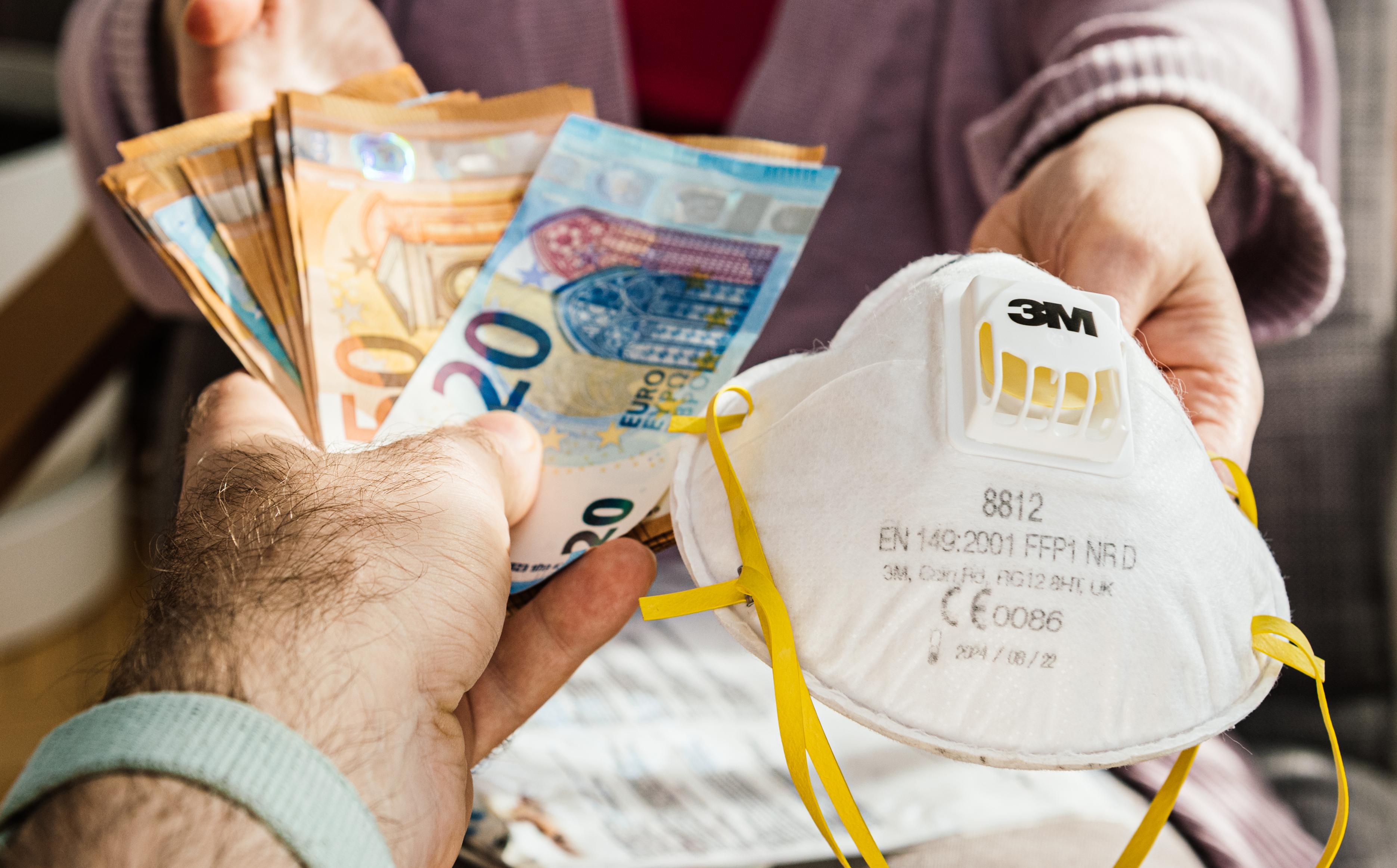Main points
- During the pandemic, donors may face a trade-off between delivering aid quickly and efficiently, and minimising the corruption risks.
- Choosing a financing mechanism to alleviate the effects of the crisis is a delicate process. It should correspond to intervention contexts and objectives but also have the necessary anti-corruption measures in place.
- Donors should work with agencies and partners for more transparency on financial arrangements and disbursements. Only cooperation and negotiation make effective decisions possible in a multi-organisational context.
- Previous crises have emphasised the need to coordinate monitoring efforts between private actors, public entities, donors, and civil society. Top-down and bottom-up information sharing is an important aspect in managing corruption and fiduciary risks.



